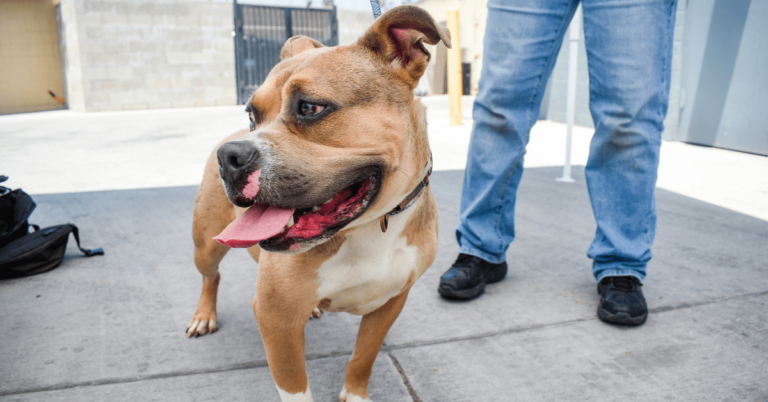How to Tell the Difference Between Normal Panting and Dog Asthma


You’re probably aware that dogs naturally pant when they’re warm or tired. But did you know that panting can also be a sign of asthma? Yep, dogs can get asthma, just like humans. In fact, this can be a serious condition. Read on to learn more about dog asthma!
What Is Dog Asthma?
Asthma is a health condition that is potentially life-threatening if left untreated. Cats are actually more prone to asthma than dogs, but small pups tend to be more asthmatic than larger ones. It’s basically an allergic reaction to something in the pooch’s environment. When the dog is exposed to the allergen, it causes inflammation, and mucus or fluid narrows or completely blocks their airways. This makes breathing extremely difficult.
Common triggers for asthma attacks include:
- Burning candles
- Cooking smells
- Cat litter particles
- Mold spores
- Pesticides
- Pollen
- Air pollution
- Cleaners
- Air fresheners
- Smoke (fireplaces, wood stoves, tobacco, etc.)
Asthma is generally diagnosed with x-rays and treated with a variety of medications.
Symptoms of Dog Asthma
While dogs are prone to panting, there are symptoms that distinguish asthma from normal breathing. Call your veterinarian if you notice any of these symptoms:
- Panting or breathing with a wide mouth
- Panting more heavily or longer than usual
- Dramatic contraction and expansion of chest muscles when panting or breathing
- Seeming out of breath
- Coughing
- Wheezing
- Fatigue
- Loss of appetite
- Pale or blue gums
If you notice pale or blue gums, you need to reach a vet immediately as this is a sign of a particularly severe asthma attack.
How to Prevent Asthma Attacks in Dogs
There are a variety of steps you can take to help create a safe living area for asthmatic pups:
- Refrain from smoking near your dog.
- Get an air purifier to reduce the air pollution in your home. A less expensive option to reduce the humidity is running your air conditioner and employing a HEPA filter. This can be placed in your air conditioner or HVAC system.
- Avoid wearing any type of perfume as these can contain chemicals and allergens that can set off an asthma attack.
- Don’t actually burn anything in your fireplace or wood-burning stove. Instead simply use it as a decorative backdrop. We recommend using battery-powered candles or fake glowing logs.
- Use white vinegar to clean hardwood floors and tiles. Use it straight from the bottle or dilute it with water.
- Use shallow bowls of baking soda instead of air fresheners or deodorizers. Luckily these bowls can be small and are easy to hide behind furniture or decorative objects. They also absorbs smells quite well.
- Think about getting rid of your carpets. The carpet manufacturing process involves tons of toxic chemicals that never go away and can trigger asthma attacks.
- Stay away from chemical-heavy pesticides and switch to a natural one like boric acid. Only use it in areas that are off limits to your dog.
- Use a dust-free cat litter if you also have a feline friend in the house.
- Regularly give your dog a bath and dry them thoroughly.



